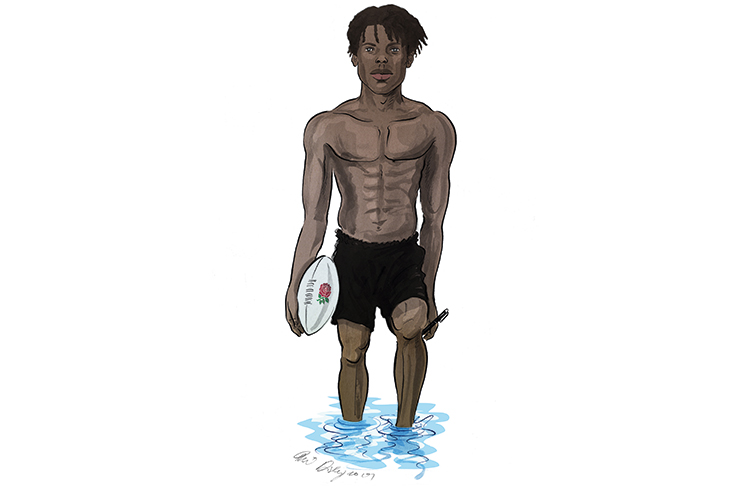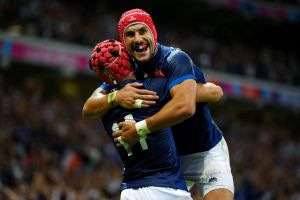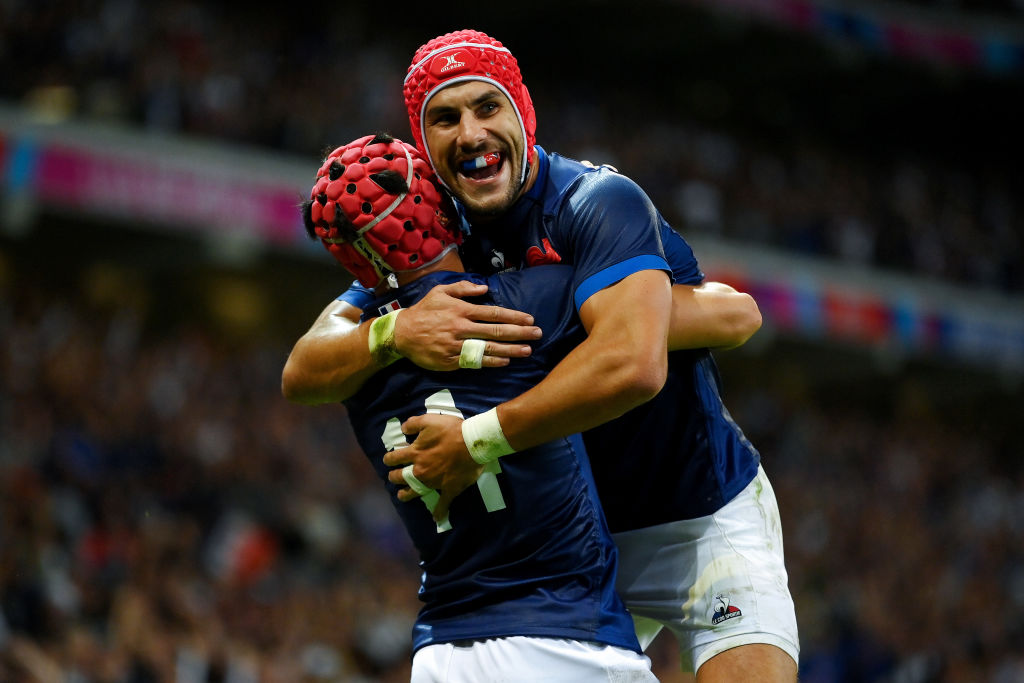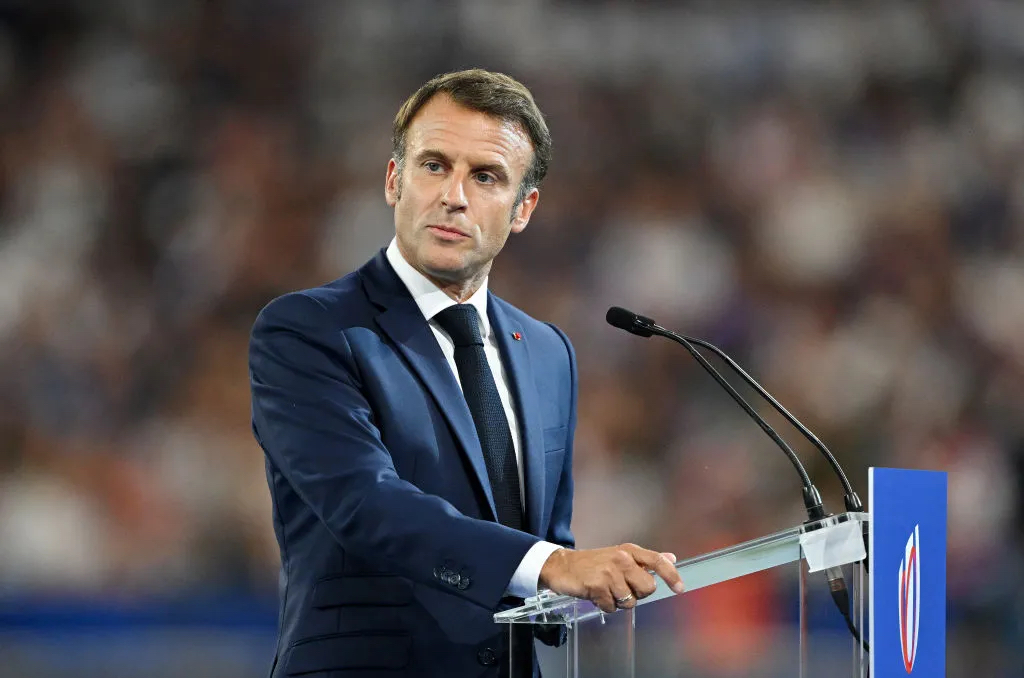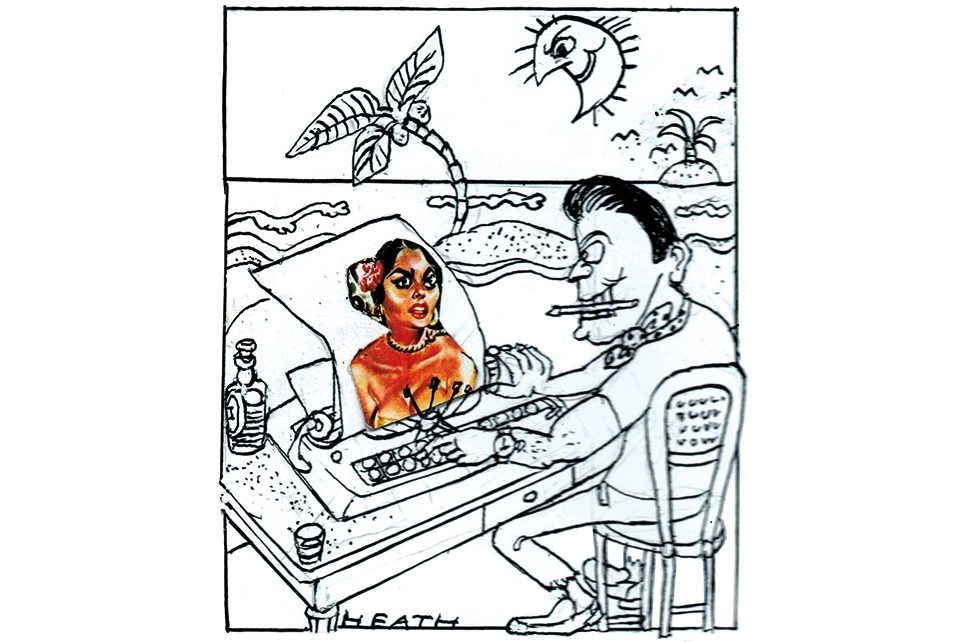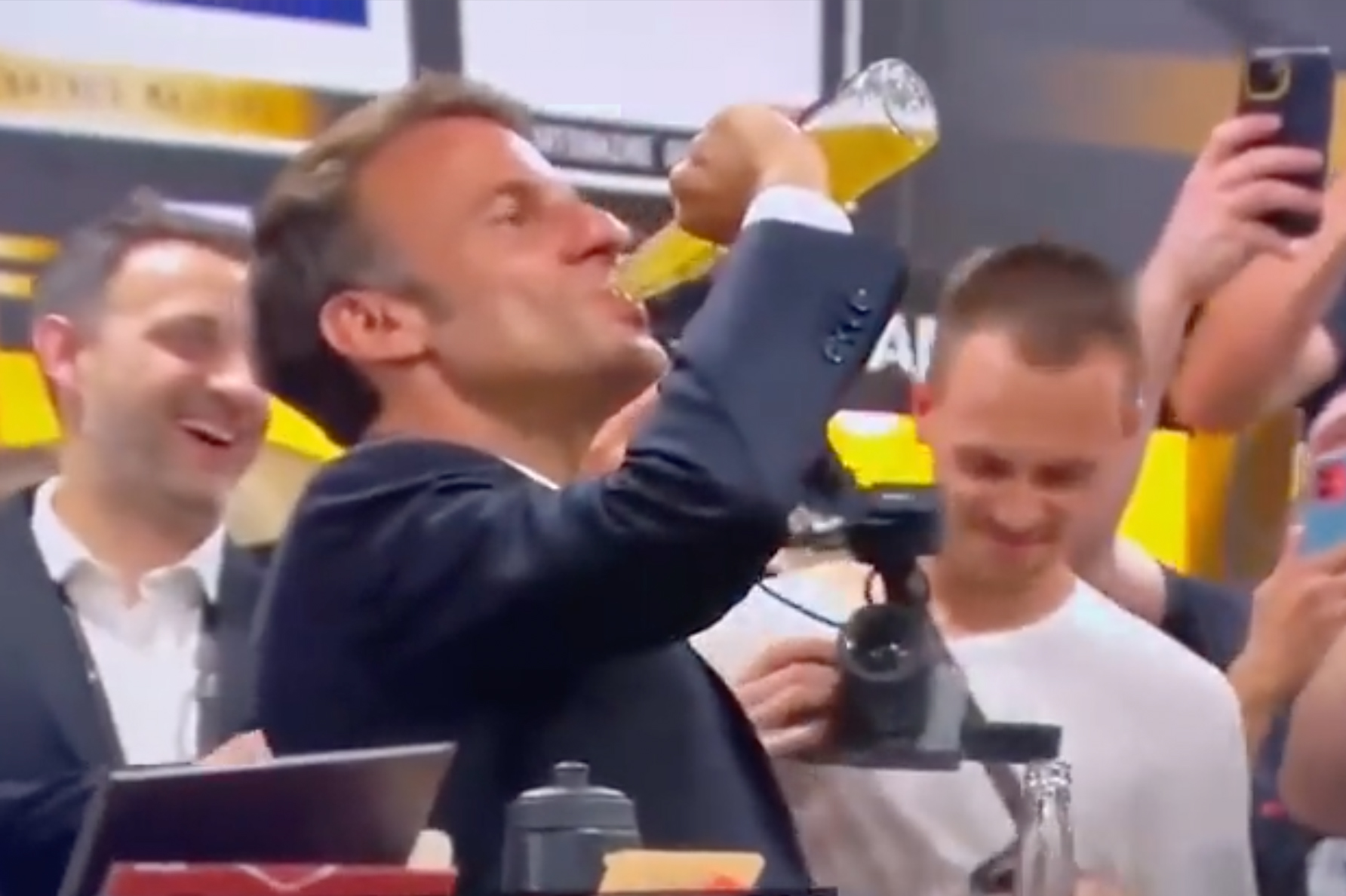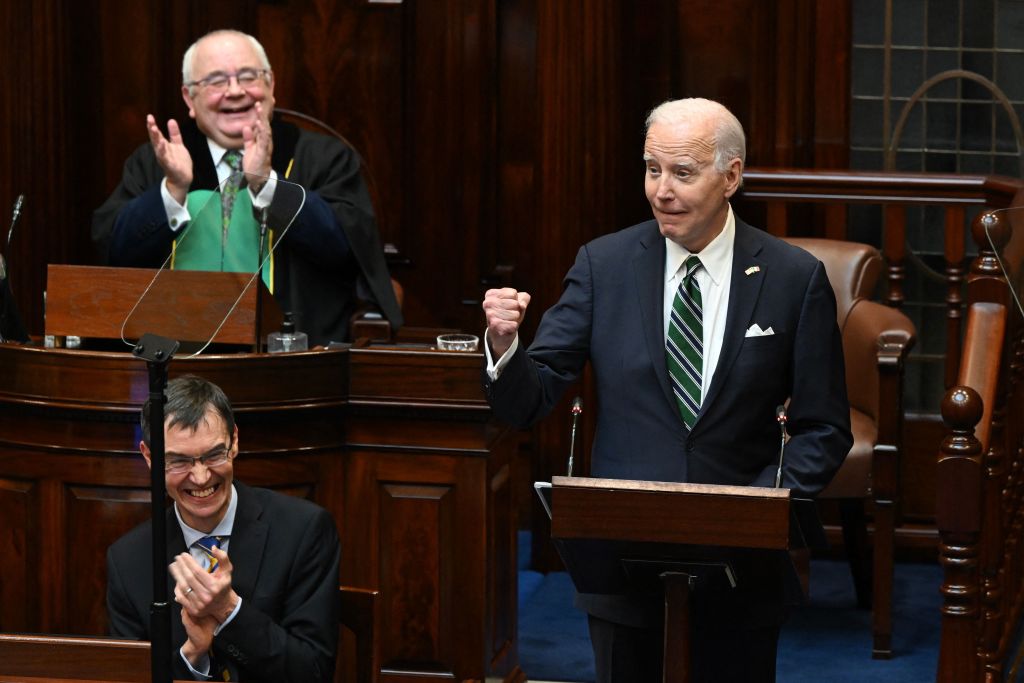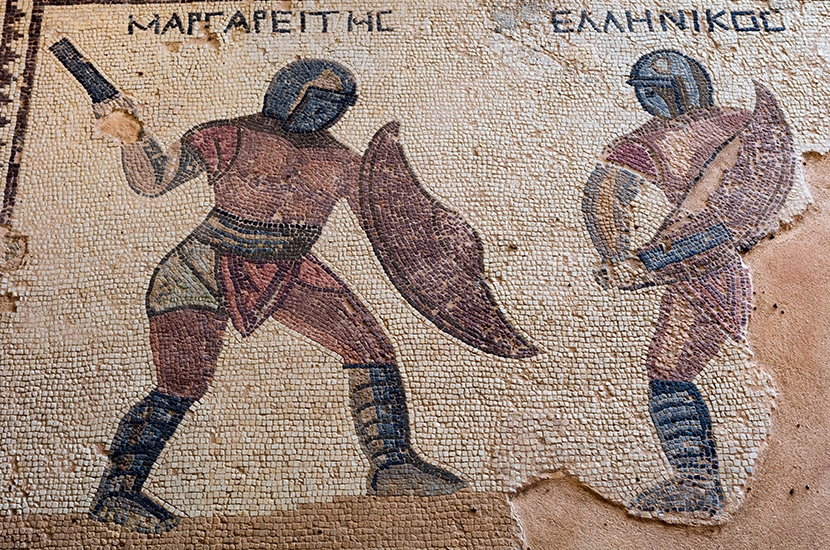Sport is a paradox. It’s supposed to be. Sport divides, but then again, sport unites. The England rugby union team play in the World Cup final in Japan on Saturday morning, thereby dividing the English from the South Africans, and dividing those who follow the game into two camps — England supporters and everybody else. Closer to home, it divides the English most particularly from the Welsh, who suffered the great misfortune of losing their semi-final to the South Africans.
But in these times of bitter divisions — perhaps the deepest the country has known since the time of the General Strike — England will, at least for a couple of hours, feel united. Above all, the country will be united behind the player who dominated England’s semi-final against New Zealand, until that day the mightiest team in world rugby.
This one player epitomized all the power and the glory of old England. He was majestic and ferocious, but at the same time everything he did had an aura of extraordinary calm and certainty. That was Maro Itoje.
He was at the heart of this remarkable England performance. It’s very rare to see an England team in any sport play with that sense of authority: as if, right from the whistle, they were the natural and inevitable winners. We associate such authority with New Zealand in rugby, Australia in cricket and Brazil in soccer. I last saw it in an England soccer team in the semi-finals of the 1966 World Cup, in the England Test match cricket team in Australia in 2010-11 and, before last Saturday, in the England rugby team of 2002, the year before they won the World Cup.
The England player who imposed this mood of authority on the New Zealand match was Itoje. His match stats, at least on the surface, look almost disappointing: 12 tackles, seven lineouts won and three turnovers. That seems a small return for a player who seemed to be in contact with either the ball or an opponent for the entire 80 minutes of the contest. But they are numbers that accurately reflect a performance that was in cold fact as dominant as it appeared to us on our sofas 6,000 miles from Yokohama.
With Itoje apparently playing all eight forward positions by himself, England played with such imperturbable authority that New Zealand looked callow, clueless and embarrassed. It was a startling and unfamiliar sensation for those who watched: for a morning, for a week — and, who knows, perhaps for a little longer — all England seemed united by the power and presence of Itoje. And that’s worth celebrating in these times of division.
It’s a troubling fact that one kind of division legitimizes other kinds. It was thought that racist abuse in soccer was something to do with history and the tensions of the 1970s, but now it’s back in fashion. Extreme views have re-joined the mainstream.
But sport, as observed earlier, unites as well as divides. England won the Cricket World Cup, and in the almost ludicrously tight final against New Zealand, the concluding and tie-breaking ‘super over’ was bowled by Jofra Archer. A crucial role in England’s progress was played by the leg spinner Adil Rashid. So what’s English? And who’s English? Unsheathe your dagger definitions — except that in victory, who cares?
There’s nothing like the sins of your enemies to bring out a warm self-righteous and altogether unifying glow. When England played Bulgaria in a qualifying match for the European soccer championship in mid-October, Bulgarian supporters collectively imitated the pant-hoot vocalization of chimpanzees whenever certain England players touched the ball; it’s called a ‘monkey chant’. The match was stopped twice, according to recent protocol introduced by Uefa, the European soccer authority (and who would have imagined they’d have to come up with such a thing in the 21st century?). Tyrone Mings, making his debut, and Raheem Sterling were picked out for these chants.
When I started writing this piece, I was planning to spell out the parentage and places of birth of the players I have mentioned. But on reflection, I have decided to do no such thing. They were playing for England. That would seem to unite them all quite adequately.
Besides, in sporting victory it seems eminently clear that all divisions are shoddy and arbitrary and should be sent spinning into the wastepaper basket. All that matters, at least for now, is that Maro, that Jofra, that Raheem played for England and did so brilliantly. Inspiringly. In a way that unified all those cheering for England: that’s a thing to cherish.
In the past year or so it’s been fascinating to observe the phenomenon of Sterling revisionism. He was a tabloid hate-object: mocked whenever possible, consistently portrayed as a stupid, greedy, objectionable young man with too much money, an attitude that stank to heaven and not enough talent to justify any of it. He was seen as a divisive figure: of the England team but not one of us. But in his measured response to various forms of abuse he has turned things around. He compared tabloid treatment of two young footballers who bought houses for their mothers. One was portrayed as a thoroughly good egg, the other as a greedy little bling-gatherer. Readers will be able to guess what differentiated those two players.
The combination of Sterling’s growing maturity as a person and as a footballer (insofar as they can be separated) prompted a radical change in the way Sterling was perceived. Last year the Football Writers’ Association voted him player of the year. Against Bulgaria, Sterling scored twice and was at the heart of everything England did at the sharp end of the pitch. He showed those foreigners a thing or two about us tolerant, broad-minded English: for now we were all one behind Sterling.
Sport is an area of life in which many of those who follow it, even or especially the most intelligent, feel that they are excused rational thought, as a malingerer in the army was excused boots. There is no need to analyze your response: you just cheer and groan and love and hate. It’s only sport, it doesn’t matter. That can make things unexpectedly clear. At a time in which distrust is widespread across England, England’s semi-final victory over New Zealand contained something gloriously uncomplicated. It was an unambiguously good time: hurrahs followed by head-wagging marvel.
And it was impossible to extract full savor from this victory without your mind going back again and again to Itoje. And not just for his ‘natural’ talent, either. No, Itoje’s performance was about leadership and example and calm and, above all, authority: all the proper ingredients of grace under pressure that add up to sporting courage. We who watched could identify with those virtues and believe, at least for a while, that we possessed them ourselves.
And we cheered for England. Never mind definitions, we knew, without analyzing it, that we were England. That Itoje was England. That Itoje was us and we were Itoje.
Sport can do these things.
This article was originally published in The Spectator’s UK magazine. Subscribe to the US edition here.



